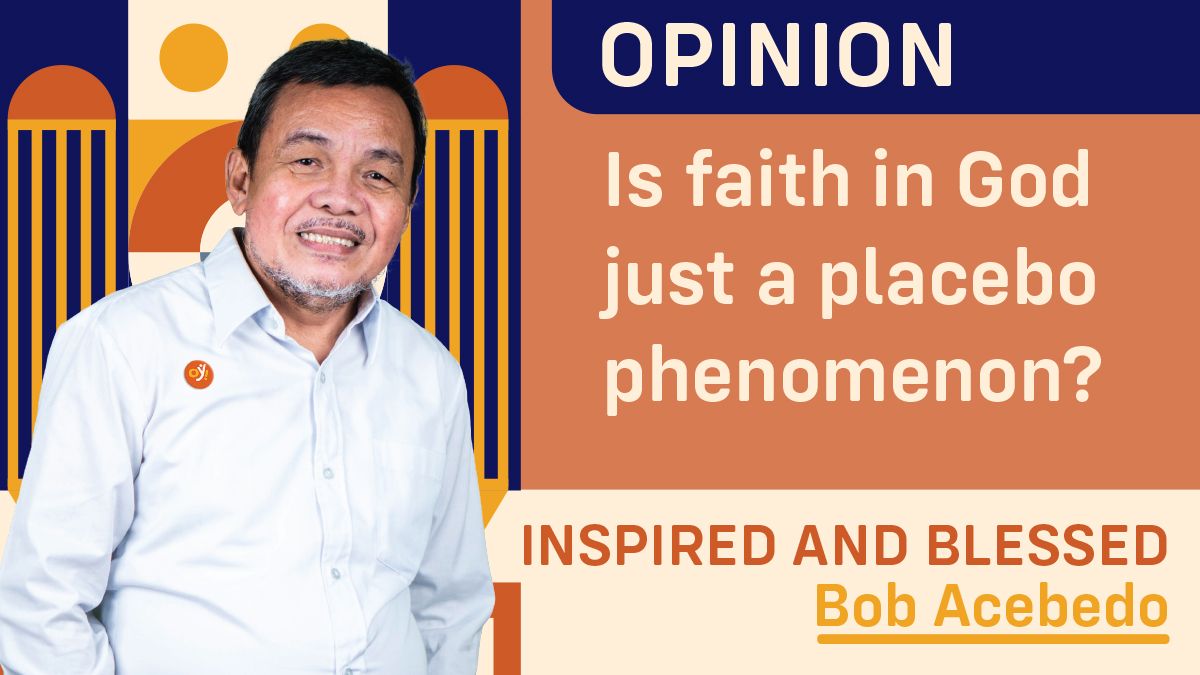I got up from bed this morning and while I was curtly reciting a prayer (which I habitually do upon waking up), a rather queasy thought flashed on my mind: Am I talking to God really because he truly exists?
Not discrediting any bit my strong conviction in God’s existence – whence I have long fathomed from philosophy and theology, from faith and reason – I just momentarily felt as if I was talking to an “absent” God.
But, yes, miracles do happen. I have no qualms about it. But, still, for the miracle of answered prayers of the multitude of faithful stewing themselves in sacrificial petitions, isn’t it more because of their unbridled belied than in God himself?
In short, do miracles happen more because of faith than because of God?
Is faith in God a mere placebo phenomenon?
In medical science, the phenomenon of “placebo effect” refers to the kind of healing that people get from a non-real drug or a mere “sugar pill”. It has been established that in clinical trials, placebos (sugar pill or saline injection) are administered to patients and that “18 to 80 percent” (Dr. Lissa Rankin, “Mind over Medicine: Scientific Proof That You Can heal Yourself”) of them reportedly get better. Scientists believe that the healing is attributed to the “mind” or the patient’s positive belief for his/her healing.
Now, let’s relate the placebo phenomenon to faith in God. If faith alone – in oneself, in being healed, in manifesting something, etc. – is effective, is this not sourced from a higher or supernatural power?
Trying to resolve my morning prayer queasiness, let me put forward the following thoughts.
For a start, CCC (Catechism of the Catholic Church) # 1814 aptly states: “Faith is the theological virtue by which we believe in God and believe all that he has said and revealed to us…By faith, man freely commits his entire self to God…(and) living faith works through charity.”
Faith is both personal and supernatural. Personal, because it is FREE assent to the whole truth that God has revealed. Supernatural, because it is an act of the Holy Spirit which allows man to have a grasp of the supernatural reality of God.
Faith is not contrary to reason or understanding. St. Thomas Aquinas succinctly wrote, “What is of faith (or God) may be incomprehensible to the human mind but not necessarily unreasonable.” In other words, it is plausibly reasonable to believe in God.
On the same vein, St. Augustine of Hippo once said, “Credo ut intelligam (I believe in order that I may understand).”
What about the “faith that can move mountains?”
The Bible exhorts: “Ask and you shall receive.” It is interesting to note that in the Hebrew context, to “ask” does not imply only “raising petitions to God” but, more so, “being enveloped of what we are asking for as if it is already happening” and, therefore, all we have to do is be grateful (and trustful) to God for He knows what is best for us. Such is faith as “small as a mustard seed” that can move mountains.
Peace ye! In sum, faith is not just subjective or a placebo phenomenon, but is objectively oriented to the divine. Faith is not just an affirmation of self-belief or of the “human power”, but an assent to the “Godness of God”.
#WeTakeAStand #OpinYon #OpinYonColumn #ColumnbyBobAcebedo #InspiredAndBlessed

